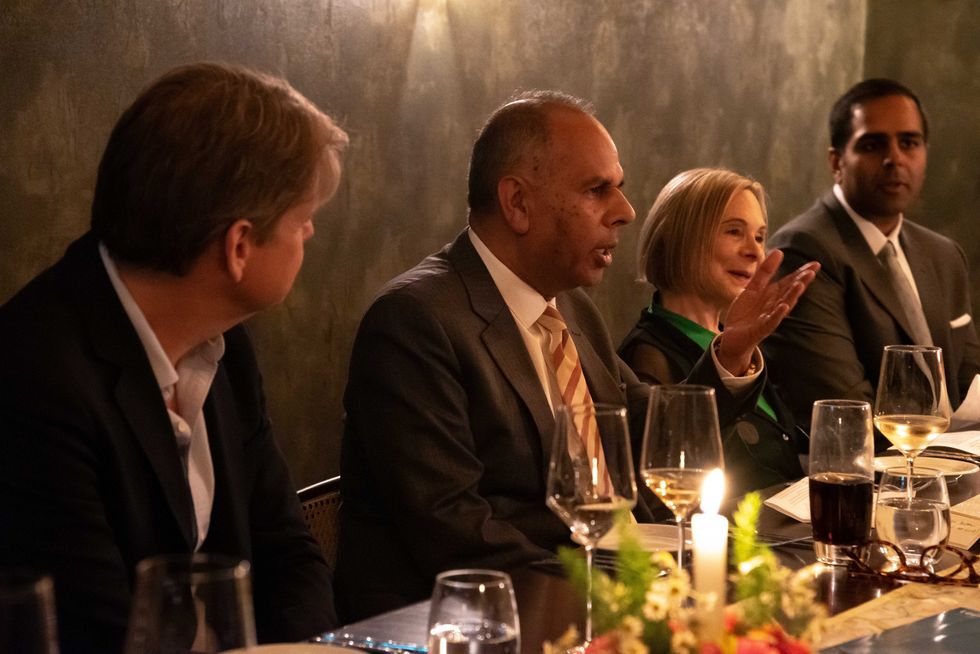Marking 550th birth anniversary of Sikhism founder Guru Nanak, resolutions have been introduced in the US Congress to recognise the contributions and sacrifices made by Sikhs in the United States and the discrimination they have faced in the country and around the world.
One of the resolution introduced by Senators Todd Young and Ben Cardin on Thursday recognises the historical, cultural, and religious significance of the 550th birth anniversary of Guru Nanak on November 12.
"This resolution honours Sikh Americans, a vital part of our Nation's rich culture and diversity,” Young said.
"Indiana is home to more than 10,000 Sikhs and I am proud to introduce the first resolution ever introduced in the Senate in their honour. As the fifth largest religion in the world, Hoosier communities are made richer by their contributions,” he said.
Expressing respect for all Sikhs, the resolution also notes the discrimination that Sikhs have faced in the US and around the world.
Cardin thanked the Sikhs for their social, cultural and economic contributions, and the courage to stand up against racial and religious discrimination against their community and others.
"Sikh Americans have been a proud part of the American story for generations and they continue to enrich our nation and the communities in which they live,” said Cardin.
The Senate resolution mentions four eminent Sikhs for their contribution to the US.
They are Dalip Singh Saund, the first Asian-American Congressman, who was elected to office in 1957; Dr Narinder Kapany, the inventor of fibre optics; Dinar Singh Bains, the largest peach grower in the United States; and Gurinder Singh Khalsa, recipient of the prestigious Rosa Parks Trailblazer Award.
It also lauded Bhagat Singh Thind who served in the United States military during the World Wars.
It also recognised the contribution of Sikh women Grammy-winning artist Snatam Kaur; New York Police Department police officer Gursoach Kaur; and University of California, Berkeley professor Supreet Kaur.
“It is a great day for the Sikhs in the United States that resolutions recognising the community have bene introduced in the House and the Senate,” Indiana-based Khalsa said in a statement.
Another House resolution introduced by Congressman T J Cox and co-sponsored by 67 others said, Sikhs have been living in the United States for more than 120 years, and during the early 20th century thousands of Sikh Americans worked on farms, in lumber mills and mines, and on the Oregon, Pacific, and Eastern Railroad.
Observing that Sikhism is the fifth largest religion in the world with more than 25,000,000 Sikhs worldwide, and over 750,000 Sikh Americans; the House resolution said that Sikh men and women have notably contributed to American society since their arrival in the late 1800s.
"Sikh Americans pursue diverse professions that add to the social, cultural, and economic vibrancy of the United States, including service as members of the United States Armed Forces and making significant contributions to our great nation in agriculture, information technology, small businesses, the hospitality industry, trucking, medicine, and technology," the resolution said.
Noting that Sikh Americans distinguish themselves by fostering respect among all people through faith and service; the resolution said that the United States House of Representatives is committed to educating citizens about the world's religions, the value of religious diversity, tolerance grounded in First Amendment principles, a culture of mutual understanding, and the importance of reducing violence.
(PTI)





 The event was hosted by Kalpesh Solanki, Group Managing Editor of Asian Media Group and President of the 100 Club.
The event was hosted by Kalpesh Solanki, Group Managing Editor of Asian Media Group and President of the 100 Club. 










